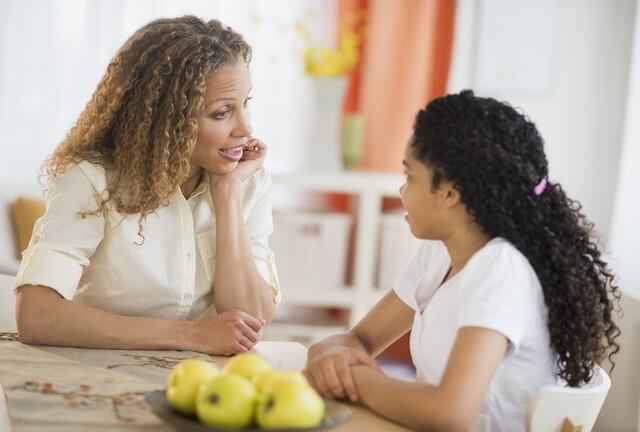Parents: Don’t Overlook Your Child’s Reaction To Your Divorce!

Be aware of the emotional toll of divorce on children!
By Rosalind Sedacca, CDC:
Parenting is always complex. Parenting following a divorce can add many other layers of distraction and confusion to the mix. That makes it even more important for parents to be aware of how their children are responding to the divorce.
Misunderstanding your child’s stage of development
One common error parents make is misunderstanding their child’s stage of development. That can lead to irrational and unrealistic expectations. Too often parents will assume that their child has a better handle on their emotions and a deeper understanding of human nature than is really possible at their age. So when their child acts out or otherwise misbehaves, it’s easy to misinterpret their intentions.
Parents mistakenly see children, even teens, as little adults who bring adult reasoning and comprehension to daily circumstances. With that mindset, it’s easy to get disappointed when your child’s behavior doesn’t live up to our expectations.
Recognize their limited emotional awareness
When divorce enters the family dynamic we often forget that our children are processing their feelings with limited skills and emotional awareness. We all know the complexities of divorce can become an enormous challenge for adults. Imagine the ramifications on youngsters or even teens!
Give your kids a break. How unfair (and unrealistic) is it to expect your children to fully understand what Mom and Dad are going through? Equally absurd is expecting children to respond with compassion. Emotional maturity doesn’t fully develop until humans are well into our twenties. Yet divorced parents frequently put the burden on their children to be empathic, understanding and disciplined in their behavior. This is especially surprising when parents struggle to access those mature attributes themselves.
Teens need your additional attention
Parents are often especially misguided in their expectations about teens. By nature, teenagers are very self-absorbed. They don’t yet have the full capacity to put others’ needs ahead of their own. In addition, most teens are not very future focused. Nor are they motivated by fear of consequences. Part of the parenting process is to role model positive behavior. It’s also important to demonstrate the advantages of setting goals, planning ahead for the future, etc. But that doesn’t mean your teen will embrace these lessons.
Unrealistic parental expectations lead to needless conflicts with our teens. Battles can easily result in a sense of confusion, insecurity, guilt or shame within their fragile psyches. Why get angry at your teen for not displaying adult maturity at a time when your own maturity may certainly be in question?
By understanding your children’s stages of emotional development as they grow, you are less likely to make mistakes you’ll regret. Among the biggest mistakes is confiding information they can’t psychologically handle. Another mistake is asking them to play the role of mediator, therapist, or personal spy. You’ll be more likely to have a better relationship with them and be less disappointed when you allow your child to behave as the child they still are!
* * *
Rosalind Sedacca, CDC is the founder of the Child-Centered Divorce Network, a Divorce & Co-Parenting Coach and author of numerous books and e-courses on divorcing with children and co-parenting successfully. For instant download of her FREE EBOOK on Doing Co-Parenting Right: Success Strategies For Avoiding Painful Mistakes! go to: childcentereddivorce.com/book
Please share this article on social media!
© Rosalind Sedacca All rights reserved.
 By Rosalind Sedacca, CDC
By Rosalind Sedacca, CDC